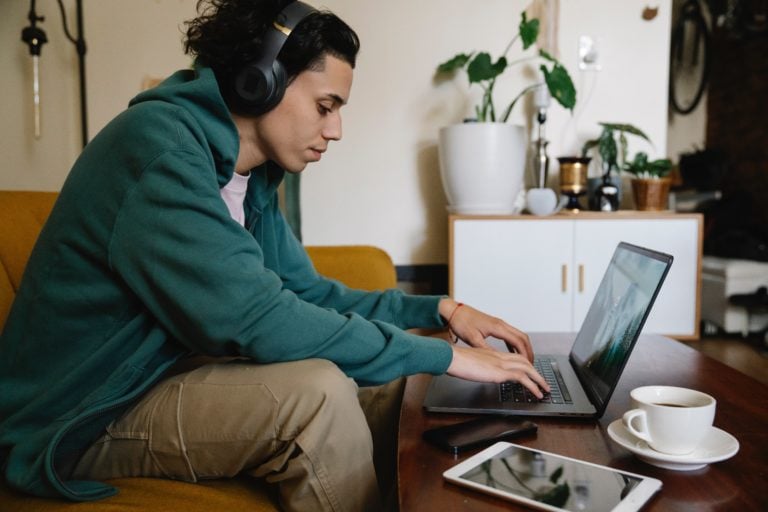8 of the best start-ups in London
Deliveroo.com
Since its debut back in 2015, the high-end food delivery service has achieved a tasty reputation with hungry punters up and down the country.
The brainchild of London-based American co-founders Will Shu, investment banker, and software developer Greg Orlowski, it’s now expanded from a few London streets to 35 UK cities and 40 others around the world. In 2016 it raised $275 million in funding, pushing its value to over $1 billion.
Not bad, considering Shu himself was the first delivery guy, operating out of a King’s Road flat above a restaurant.
Osper.com
Financial whiz kid Alick Varma – Londoner, son of chartered accountants, and himself a former McKinsey consultant and maths teacher – had the bright idea of offering a mobile-only financial service to children.
So in 2011, Osper was born, and launched in 2014. With its bright pre-paid debit card and smartphone app, it’s designed to help parents teach their children (8 to 18 years old) the value of money. It’s by no means the only player in the youth banking market, but it raised £10 million in 2014 – helping Varma push the service further than the UK, and into the young adult fintech market.
Cortex.twitter.com
Founded in 2014 by Zehan Wang and CEO Rob Bishop, London-based tech startup, formerly known as Magic Pony Technology, harnesses neural network technology to make robots think more like humans.
This then helps enhance images and low quality video streams, not to mention virtual and augmented reality applications, so no wonder this ‘magical’ new gem caught Twitter’s eye. The social media giant bought it from co-founders for a reported £117 million in 2016.
WinnowSolutions.com
Winnow’s ingenius smart meter idea is designed to slice restaurant food waste in half. Launched in 2013, the efficient waste system connects to cloud software that measures daily food waste, encouraging businesses to change their processes and spending habits for the better.
In 2016 the Alan Parker-backed start-up raised £2.3 million in venture capital to help feed its growth, but there’s a real market out there for it. In hospitality alone there’s a potential $80 billion-dollar market globally, but here in the UK it’s used in 200 kitchens, including Hugh Fearnley-Whittingstall’s River Cottage restaurants.
Carwow.co.uk
Car buying has levelled up with this Holborn-based online service, which is disrupting the industry to the tune of $27.5 million in funding. Instead of trawling dealerships, you can choose your ideal car and budget, and let the dealerships come to you with their best offers, and shave a few grand off the price in the process.
According to the founders Alexandra Margolis, James Hind and David Santoro, it’s a very British way of doing things. Imagine it – the end of face to face haggling!
Grabble.com
Dubbed the ‘Tinder for fashion’ by Forbes when it burst onto the scene, this brainchild of Daniel Murray and Joel Freeman enables users to swipe through personalised fashion items put together by actual stylists, and lets them buy at the tap of a finger.
In 2015 Grabble closed a £1.2 million funding round – and where it’s popular with users and Angel investors, it’s also popular with retailers such as Harvey Nichols, M&S and Ted Baker.
Babylonhealth.com
When getting a GP appointment is a faff and Doctor Internet is unreliable, UK start-up Babylon Health steps in.
The founder and CEO, Dr. Ali Parsa, set up the app to use a mixture of artificial intelligence and real medical professionals to give a diagnosis. Dr. Parsa said that “it’s about creating a better way to be diagnosed”, and it certainly does the job for over quarter of a million users.
Now it’s secured $60 million in new funding, which will help the startup push into full diagnosis-by-AI. It won’t render doctors redundant; rather, Dr. Parsa says that AI “will allow doctors and health care professionals to become more accessible and affordable for everyone on earth. It will allow them to focus on the things that humans will be best at for a long time to come.
Student.com
Finding good private accommodation can be very tricky, especially for overseas students. That’s why ex-students and founders Luke Nolan and JP Jones (joined later by Shakil Khan) set up Student.com in 2011.
If it seems like it’s flown under the radar, it has. Keeping schtum was a deliberate strategy to avoid creating too much competition – and focus on building its business from the ground up. Now it’s got students and landlords in 426 cities worldwide, took around $100 million in bookings in 2015, and in 2016 rounded up $60 million from investors.




